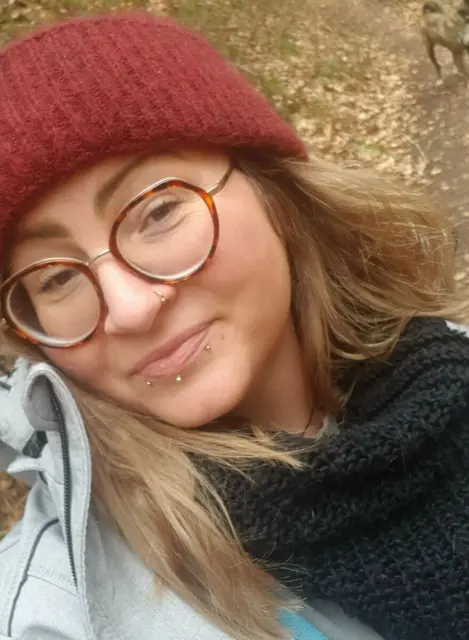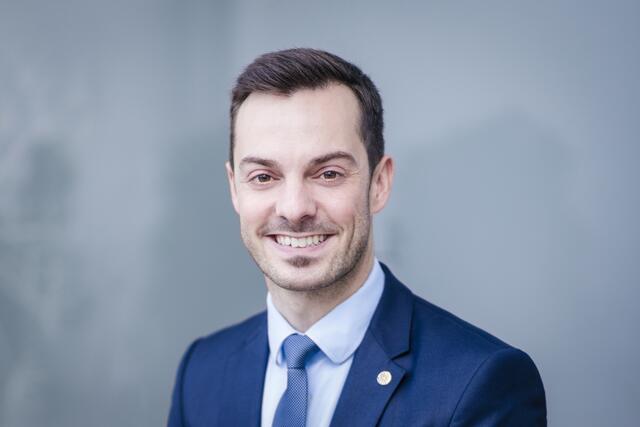Rassismus-Debatte in Pandemie-Zeiten
Ein Virus kommt selten allein

- hochgeladen von Henning Belle
Heidelberg/Mannheim (hb). Die jüngsten Übergriffe amerikanischer Polizisten auf dunkelhäutige Landsleute lösten Proteste historischer Tragweite aus und erinnern daran, dass „Corona“ nicht das einzige Virus ist, mit dem die Menschheit zu kämpfen hat. Rassismus ist ein anderes. Ob die Tötung des unbewaffneten und wehrlosen George Floyd oder die ebenso grundlose Festnahme des CNN-Journalisten Omar Jimenez vor laufender Kamera – die Bilder aus den USA rufen dunkelste Zeiten ins Gedächtnis und machen deutlich, dass die Hautfarbe im vermeintlichen „Land der Freien“ auch im Jahr 2020 noch über menschliche Schicksale entscheiden kann. Doch nicht nur die Vereinigten Staaten sind betroffen. Rassismus ist längst zur Pandemie geworden, es gibt kein Land, keine Region, keine Gesellschaft, vor der dieses grassierende Virus Halt macht. In Deutschland wurde erst im Februar Hanau zum Schauplatz menschenverachtender Gewalt und unsagbaren Leids und war dabei doch nur ein weiterer Name auf der langen Liste rassistisch motivierter Verbrechen.
Der in Bonn ansässige Deutsche Akademische Austauschdienst (DAAD) hat sich auf die Fahnen geschrieben, mit seinem vornehmlich aus öffentlichen Geldern finanzierten Budget von mehr als einer halben Milliarde Euro das „Verständnis zwischen Völkern und Individuen“ zu fördern und damit zu helfen „den Frieden zu sichern“. Um zu diesem Ziel beizutragen und ein Bewusstsein zu schaffen für die globale Bedeutung der aktuellen Rassismus-Debatte in den USA, hat der DAAD-Freundeskreis Rhein-Neckar Stimmen von Stipendiatinnen und Stipendiaten sowie Alumni aus aller Welt gesammelt. Denn letztlich kann Rassismus nur unter Einbeziehung unterschiedlicher Perspektiven und historischer Hintergründe eliminiert oder zumindest eingedämmt werden. Wie in der Corona-Krise kommt es dabei darauf an, die Infektionsgefahr zu minimieren, Superspreadern Einhalt zu gebieten und die Zahl der Infizierten zu reduzieren. Nur einen Impfstoff wird es in diesem Fall definitiv nicht geben.
„Rassismus ist bedauernswerterweise ein Teil des Menschen”, lamentiert denn auch José Manuel Pavón Vazquez aus Mexiko und hofft auf die Empathiefähigkeit jedes Einzelnen: „Wolltest du, dass so etwas deinem Vater passiert, deiner Mutter, deinem Bruder, deiner Schwester, einem Freund?“ Angesichts der Unterschiede zwischen den Menschen sei es wichtig sich gegenseitig kennenzulernen, um so eine bessere Lebenswelt für alle zu schaffen. Ronald Van Crombrugge aus Belgien zeigt sich „unglaublich wütend“ angesichts der Bilder aus den USA und sieht es als seine Pflicht an, „zuzuhören, zu verstehen und zu unterstützen.“ Als Mann mit weißer Hautfarbe habe er Privilegien in dieser Welt, dessen sei er sich bewusst. „Ich werde wohl nie den Schmerz, die Verletzungen, die Ungerechtigkeiten ertragen müssen, die systematischer Rassismus mit sich bringt. Weiße Männer dominieren die öffentliche Meinung seit Jahrhunderten, ja seit Jahrtausenden", so Van Crombrugge. "Es ist längst überfällig, Demut zu zeigen und die öffentliche Bühne denen zu überlassen, die Zeugnis ablegen und von ihren Erfahrungen berichten können. Wir haben viel zu lange ein fundamental ungerechtes System akzeptiert!"
Der Nepalese Rupesh Shrestha hebt vor allem den Zusammenhang zwischen Rassismus und den sozio-ökonomischen Bedingungen eines Landes hervor. „Solange es diesbezüglich Ungleichheit gibt, wird es auch Diskriminierung geben“, betont er. Noch pessimistischer schätzt ein DAAD-Alumnus aus dem Sudan die Lage ein: „Ich glaube nicht, dass diese Tragödie jemals enden wird!“ Der jahrhundertealte Rassismus gedeihe im „Land der Freiheit und Chancengleichheit“ bis heute – trotz traumatisierender Segregationserfahrungen. Dass er, wie auch weitere Stimmen (siehe unten), aus Angst vor Konsequenzen anonym bleiben möchte, spricht Bände.
"Das Rassismus-Virus beeinflusst auch die Generation der Kinder", beobachtet Serdar Durdyyev aus Turkmenistan, und fordert mehr Investitionen in Bildung, etwa verpflichtende Anti-Rassismus-Kurse in Schulen oder mehr interkulturelle Aktivitäten. Trevelyan Wing aus den USA sieht Rassismus als Geburtsfehler seines Heimatlandes an und verweist darauf, dass die afro-amerikanische Community auch höhere Corona-Todeszahlen zu verkraften hat. Angesichts dieser Benachteiligungen sei der zentrale Slogan der aktuellen Demonstrationen tragischer- und ironischerweise doppelt passend: „I can´t breathe!“ Entsprechend eindringlich war die Forderung von Al Sharpton, Ikone der Bürgerrechtler in den USA, bei der Trauerfeier für George Floyd in Minneapolis: "Get your knee off our necks!"
Was seiner beeindruckenden Rede folgte, waren Momente der Stille, die so lange dauerten wie George Floyds Martyrium vor laufender Kamera unter dem Knie eines weißen Polizisten: 8 Minuten und 46 Sekunden. Diese Leidenszeit des 46-Jährigen Afroamerikaners stand auch im Mittelpunkt der von zwei Schülerinnen organisierten Anti-Rassismus-Demonstration am Samstag, 6. Juni 2020, in Mannheim, zu der rund 650 Personen angemeldet waren und mehr als neunmal so viele kamen. Gegen 14.30 Uhr knieten, saßen oder lagen rund 6000 Menschen 526 Sekunden lang mucksmäuschenstill im Ehrenhof des Schlosses, um des Getöteten zu gedenken. Auch ehemals und aktuell vom DAAD Geförderte zeigten mit dieser Geste Flagge, getreu dem Motto der Kundgebung:
"Nein zu Rassismus - BLACK LIVES MATTER!"
N.B.: Mit dem Thema "Rassismus" beschäftigt sich auch die politische Kabarettsendung "Die Anstalt" (ZDF) vom 14.7.2020 - sehr zu empfehlen!
.
Weitere Stimmen aus aller Welt
"Every day micro aggressions and victimization by white colleagues and even friends, which leads to lost opportunities, financial and career progression by minorities. The worst is when organizations and institutions that claim to fight inequalities and racism fail to stand up against such behaviours or fail to investigate any claims or just go ahead and support these behaviours. There is a need to set up independent institutions that can tackle and prosecute those who engage in racial discrimination especially at the work place and education institutions. Black racism is complicated because you receive racism from everyone else who is not black. But this is my lived experience." - Anonym, Kenia (z. Z. USA)
"The problem is the same in all Western countries. The minority immigrant communities face lots of racism and also are suffering the most, both economically and healthwise, from COVID. The US is more extreme but many European counties also have ugly right wing politicians and problems with racism. We need to give better support to the poorer communities in the US in particular because some areas of cities are so terrible and eventually the frustration explodes. Actually one of the bright spots of COVID is that the key workers are suddenly the most important. They are often poor and minority groups who normally are ignored. Finally we see in the U.K. that immigrants are critical to keep the health service and economy running." - Anonym, Vereinigtes Königsreich (z. Z. USA)
"In 2014, Eric Garner was put to the ground and in a chokehold by several police officers in Staten Island. This, compounded with already poor health, he suffered a heart attack and died in the ambulance on the way to the hospital. It appears almost as if the exact same thing happened to George Floyd. Protests and concerns about police brutality arose then as they do now, but will it be enough? Will we have another Eric Garner or George Floyd in 6 years? In a recent commentary, author Chris Hayes points out that there are two kinds of justice regimes in the US: one where police is in the margins and law enforcement barely intervenes in people's lives (which is how affluent and well-off people, including myself, experience the police). This system, which Hayes calls the "nation", fits the expectation of a liberal democracy. The other criminal system is one where law enforcement is actively intrusive and is itself unaccountable. Hayes designates this as the "colony", which we'd associate with non-democratic institutions. Hayes traces this divide in what he calls "white fear" (…) I hope that the protests in the US and around the world can melt the old divides and forge a new and just bond between people, such that in six year's time and beyond there won't be another George Floyd, Eric Garner, or the countless of other colored or minority Americans, that have had to endure colonial ´justice´." – Filip Niklas, Norwegen
„Der konventionelle Rassismus in Venezuela richtet sich in den meisten Fällen gegen die Stämme der Ureinwohner, z.B. die Warao, Yukpa, Guajiro, Pemon, etc. Assimilation ist nicht die Antwort, weil die Kulturen der Ureinwohner und ihre Sprachen sonst für immer verschwinden!“ - Hugo Pernia, Venezuela
"In this crisis of COVID-19 and viral racism, lives of people carrying genes which the ´social selection´ (…) doesn’t favor are systematically discarded through judicial, health and job inequality. Confronted with the common threat, people having together signed the social contract are supposed to unite. It’s time for us to rely on our commonness, while in fact disparities are splitting the society more seriously than ever. Some ethnic groups are significantly more vulnerable to this crisis due to unemployment, uninsuredness and chronic health problems. However, some individuals free of those adversities do not only passively show no regard to their fundamental interests, but also actively jeopardize their welfare with biased policing. As for the governments implementing policies with biopolitical considerations, they should acknowledge that a harsh, fiendish social environment can impose more limitations on contributions one can make to the society than any assumed genotype (...)." – Qu He, China
“I was shocked by race discrimination in London when working there in the early 70s. Coming from Timaru, NZ where all races were treated as ‘one of us’ I never thought persons of colour were anything different from us. We learnt different Maori culture customs, games and songs at school but never realised at the time the Maori children weren’t allowed to speak their language. That later changed thank goodness. All the same there was harmony and great friendships between us all and still is between most of New Zealanders. I believe one way to fight racism is to reset the mindset: ´THEY ARE US´ should be the message spread through Facebook, You Tube, Instagram etc. All educators and leaders should set examples of non-discrimination (…) and governments should set laws against discrimination with set penalties if broken. (…) If we all pushed forward together as a whole, we may make a difference to the younger generation coming through. It may relieve them of being subjected to so much pain and suffering in the future.” – Carmel Daly, Neuseeland
"I don’t care too much about people's reaction. I want to see people's action. As a young American, I demand for politicians to help the people and not themselves. Police must be held accountable if they continue hurting the people they should be protecting. I want gun control. I want more accessible and equal education opportunities, especially in poorer communities. I want to address the opioid crisis and revamp the prison system with rehabilitation for people afflicted with mental health issues and poverty. This is the change I hope to see in times like these. I believe these changes can prevent this violence and injustice in the future by helping people receive equal opportunities today. The systemic racism in the US is real and it needs to be fought immediately with long-term change. It saddens me to say that this situation makes me wary about moving back home in a year." - Sarah Cluff, USA (z. Z. Deutschland)
Fotos (hb): Anti-Rassismus-Demo in Mannheim am 6.6.2020
Autor:Henning Belle aus Wochenblatt Rhein-Neckar |


















Sie möchten kommentieren?
Sie möchten zur Diskussion beitragen? Melden Sie sich an, um Kommentare zu verfassen.